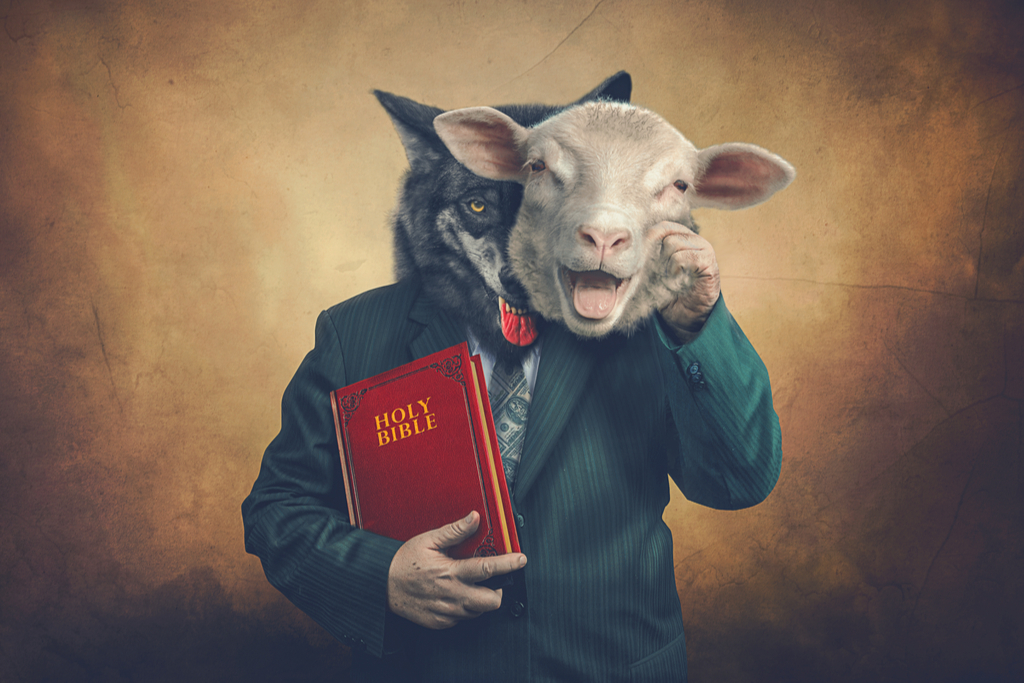Long thought of as the windows of the soul, dreams may reveal our deepest fears and hope. Sometimes, they can even bring amazing insights. In this regard, dreams that are warning come out as stark reminders of the vigilance we need to maintain in our spiritual journeys. False shepherds are an atypical theme in these dreams. This symbol is a warning against deceit and other spiritual wrongdoings urging us to distinguish true guidance from alluring illusion.
The concept is deeply ingrained into the teachings of spirituality and religion. It refers to the people who deliberately mislead others, putting their own needs ahead of the well-being of others. In dreams, these figures can appear convincing and charismatic, reflecting reality-based situations, where it is difficult to discern what is true from what is not. Dream shepherds aren’t only guides as well as a reflection of our honesty in everyday life.

Understanding the false shepherd meaning in dreams requires us to consider the context in which this figure appears. The dreams of these people are usually captivating, vivid and evocative. They also leave an impression of urgency that lasts for a long time. The emotional impact is not an accident; it’s an alarm in the spiritual realm to warn us of possible danger or loss from people we trust. False shepherd dreams are often experienced in vulnerable times, when our subconscious is in tune to recognize dangers the conscious mind may miss.
The mythology of the false shepherd in dreams is varied but commonly features scenarios where the shepherd takes a flock away from danger, or toward barren land. This powerful symbolism is a reflection of the fear of being deceived or fooled by people in authority regardless of whether they are in religious, spiritual or secular context. False leadership can be a metaphor, not just for spiritual ones, but also for other guides in our lives.
The interpretation of these dreams calls for a profound personal and spiritual reflection. One must consider who in my life is the false shepherd? Does someone’s behavior not match their speech? These questions can expose uncomfortable truths about leadership, relationships and the way we interact in our communities and personal environments. Being aware of the characteristics of false shepherds–self-serving agendas, manipulative behavior, lack of compassion, etc.–can empower people to take informed decisions about who to follow.
Such dreams also encourage the person to rely on their own spiritual compass instead of relying on external guidance. True guidance does not rely on external sources, but rather empowers. It is a way to promote values that align with the truth and the divine devotion to God instead of imposing control and fear. These nocturnal warnings from God can aid believers in protecting themselves and their loved ones from false beliefs.
The dreams of the false shepherd serve an important dual function: they serve as both a warning and a call to action. They force us to rethink, to verify, and to search for truth in our spiritual lives. Understanding the meanings of the interpretations of dreams can be essential for those who are on a path of faith to remain true to their faith and avoid the false comforts offered by false prophets.
In essence, it’s more than just a fantasy, it’s an examination of the spiritual and a moment to be reckoned with. It makes us look beyond the surface of things, to challenge our complacency, and to reaffirm commitments to only follow those leaders that lead with integrity and honesty. As we navigate the complexities of our lives, both awake as well as in our dreams the false shepherd is a powerful symbol of the constant vigilance needed to protect our spiritual wellbeing.
